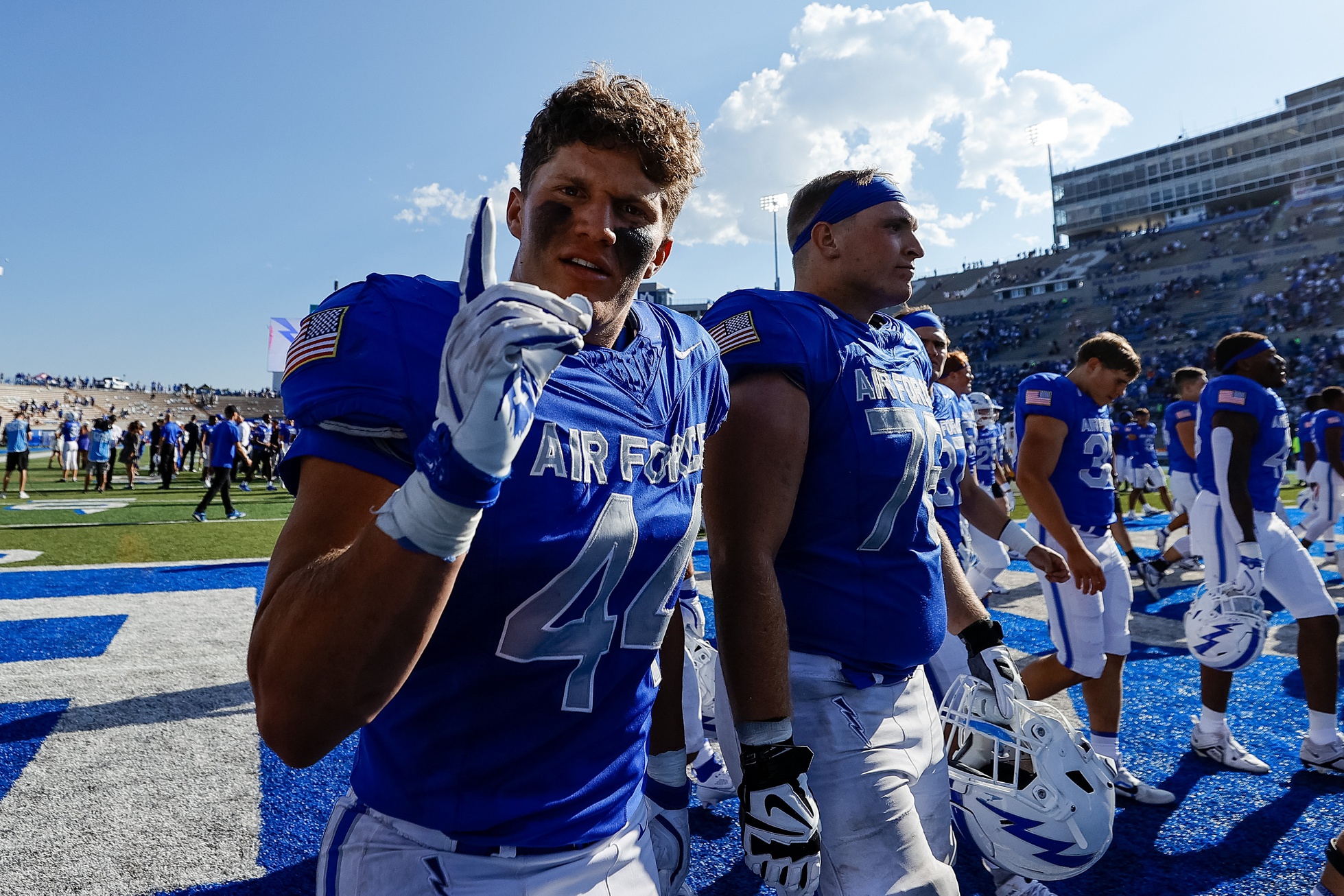The Mountain West has taken a major step toward stability after a tumultuous two-week period in which the conference almost got picked apart.
On Thursday, the seven remaining members of the Mountain West signed a written agreement, including financial incentives, to stay with the conference, a source confirmed to Front Office Sports. The agreement is not a formal grant of rights, but the schools have agreed to “execute” a grant of rights running from 2026 through the 2031 season, or the end of the next College Football Playoff media deal. Those seven members are: Air Force, Hawaii (partial member), UNLV, Wyoming, New Mexico, San Jose State, Nevada.
The schools have agreed to the following revenue distributions for their signing bonus: Air Force and UNLV will get 24.5%, Nevada, New Mexico, San José State and Wyoming will receive 11.5%, and Hawaii will get 5%.
The conference will likely fund these incentives through the $140 million in damage and exit fees it expects to receive from the Pac-12 and departing schools—though the Pac-12’s fees are currently the center of a new lawsuit. The incentives helped convince UNLV and Air Force not to depart for the Pac-12 and AAC, respectively.
The two-member Pac-12 and Mountain West have been at the center of the recent realignment shuffle, and have gone from potential marriage partners to rivals in less than a year.
The leagues are currently in the middle of a one-year football scheduling agreement allowing Oregon State and Washington State to be slotted into Mountain West conference play. But two weeks ago, the Pac-12 announced it would poach Boise State, San Diego State, Fresno State, and Colorado State from the Mountain West in 2026. Mountain West Commissioner Gloria Nevarez tried to get remaining conference members to sign a retention contract earlier this week to prevent any other members from leaving, but that deal had to be redone after Utah State agreed to defect to the Pac-12.
On Tuesday, the Pac-12 filed a lawsuit against the Mountain West over the damage fee portion of the scheduling deal. The complaint, filed in federal court, argues the “damage fee” portion of the football scheduling contract between the Pac-12 and Mountain West is illegal on antitrust grounds. The agreement requires the Pac-12 to pay $55 million for poaching five Mountain West schools, according to a copy obtained by FOS. The lawsuit is ongoing.
Both the Mountain West and Pac-12 have work to do to ensure their survival, however.
Starting in 2026, the Mountain West will have six full members. Its seventh member, Hawaii, is a football-only school. The Mountain West needs eight total full FBS-playing members to maintain FBS status, per NCAA rules—though it has a two-year grace period, starting in 2026, to do so. (The CFP also has a rule requiring a conference to have eight members to be eligible for a conference championship automatic bid in the new 12-team format.)
So the conference must find two more full members to join between now and 2028. At least one eligible school—a current FBS member—has expressed interest: New Mexico State. Sacramento State, an FCS member that is looking to make the jump to FBS (and which just announced funding for a new 25,000-seat football stadium) could be another option, as long as it starts its two-year FBS-transition period by next year and becomes an FBS program by the time the Mountain West’s grace period runs out.
The Pac-12 will also have to find at least one more member to maintain FBS status, though it only has one more year to do so. Starting in 2026, the Pac-12 will have seven members: Oregon State, Washington State, and the five it poached from the Mountain West.







![[Subscription Customers Only] Jun 15, 2025; Seattle, Washington, USA; Botafogo owner John Textor inside the stadium before the match during a group stage match of the 2025 FIFA Club World Cup at Lumen Field.](https://frontofficesports.com/wp-content/uploads/2026/02/USATSI_26465842_168416386_lowres-scaled.jpg?quality=100&w=1024)
![[Subscription Customers Only] Jul 13, 2025; East Rutherford, New Jersey, USA; Chelsea FC midfielder Cole Palmer (10) celebrates winning the final of the 2025 FIFA Club World Cup at MetLife Stadium](https://frontofficesports.com/wp-content/uploads/2026/02/USATSI_26636703-scaled-e1770932227605.jpg?quality=100&w=1024)








